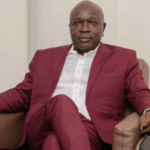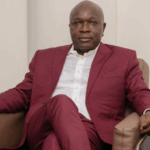
President John Dramani Mahama has filled his legacy government with youthful appointees — a move some describe as a political gamble.
For me, this is neither a gamble nor a political strategy. It is a national necessity — one that the appointees must treasure and use to create opportunities for their teeming colleagues. If done well, this bold step will not only address some of the country’s most pressing challenges but also prove that today, not tomorrow, belongs to the youth.
With Ghana’s population overwhelmingly youthful, empowering the next generation is not optional — it is essential.
That is why the appointments of Dr. Frank Amoakohene as Ashanti Regional Minister; Felix Kwakye Ofosu and Shamima Muslim as Government Spokespersons; Stanislav Dogbe as Deputy Chief of Staff; Beatrice Annangfio as Presidential Staffer; Sammy Gyamfi as CEO of GOLDBOD; Godwin Kudzo Tameklo as CEO of the NPA; Afetsi Awoonor as CEO of BOST; and the “green army commander” Malik Basintale as CEO of the Youth Employment Authority, are both magical and spot on.
Dimming Dreams
Ghana’s median age is 21.3 years, with more than 57 per cent of the population under 25. Each year, over 110,000 young people graduate from universities and other tertiary institutions, according to the Ghana Tertiary Education Commission (GTEC). Yet only 10 per cent are absorbed into the public sector, leaving the rest to struggle in a job market that is not expanding fast enough to meet their aspirations.
Data from the Ghana Statistical Service (GSS) show that youth unemployment currently stands at 22.5 per cent among those aged 15–35, with long-term unemployment affecting nearly 355,000 young people.
These are not just statistics — they represent lives, families, and dreams on the brink of fading. This must be a call to action.
Mahama’s Strategic Vision
Having been entrusted with leadership roles while still young, President Mahama has consistently championed youth inclusion and equity.
His appointment of Ghana’s first female Vice President, Professor Naana Jane Opoku-Agyemang, who declared she was “opening the door for girls in Africa,” stands as a powerful symbol of inclusive leadership.
The Ashanti Regional Minister, among many other young appointees, exemplifies this new wave of governance. But with opportunity comes scrutiny.
Critics, including former NPP MP K.T. Hammond, have questioned the wisdom of entrusting national leadership to the youth. Hammond once described youthful ambition as “empty-headed,” warning that young people “cannot be the only ones in charge of governance.”
This is where the youth must rise — not with rebellion or rhetoric, but with results and responsibility.
Keeping the Door Open
Every young appointee carries not just personal ambition but the hopes of millions of Ghanaian youth.
If they succeed, they justify the confidence placed in them. If they fail, they reinforce the false narrative that “youth equals incompetence,” giving the old guard reason to roll back progress.
That is why President Mahama’s young appointees — and indeed every young leader — must work hard, uphold integrity, and focus on real issues: unemployment, underemployment, digital exclusion, and lack of access to capital.
Across Ghana, young innovators are already reshaping governance, business, and civic life through technology, entrepreneurship, and social impact projects. Similar stories are emerging in Rwanda, Nigeria, and Ethiopia, where youthful leadership is driving change.
But it must not end there. The youth must be dynamic and reform-minded, championing practical policies in education, entrepreneurship, and digital skills.
With more than 380,000 new job seekers entering the labour market annually, policies must shift from theory to action. Young leaders, particularly those appointed by President Mahama, must spearhead bold reforms that tackle unemployment and bridge the digital and financial inclusion gaps.
These include:
- Expanding technical and vocational education with market-relevant skills.
- Investing in digital infrastructure and innovation hubs.
- Creating youth-targeted financing schemes for start-ups and SMEs.
- Reforming public sector hiring to make it more inclusive and merit-based.
Bridge Between Generations
While the youth rise, seasoned leaders must not step aside. They must mentor, guide, and support young appointees.
Initiatives like the Programme for Young Politicians in Africa (PYPA) and the African Leadership Centre Fellowships show how mentorship can drive continuity. But mentorship must not be about control — it is about passing on wisdom, not power.
It ensures that the next generation leads with clarity, courage, and competence.
Ultimately, leadership is not about age — it is about vision, discipline, and service.
The youth must not only walk through the doors opened by President Mahama; they must also keep them open for others. That is how we build a future worthy of our collective dreams.
Let us rise. Let us lead. Let us justify the confidence reposed in us.
The writer is a businessman and philanthropist.
- President Commissions 36.5 Million Dollars Hospital In The Tain District
- You Will Not Go Free For Killing An Hard Working MP – Akufo-Addo To MP’s Killer
- I Will Lead You To Victory – Ato Forson Assures NDC Supporters
Visit Our Social Media for More




